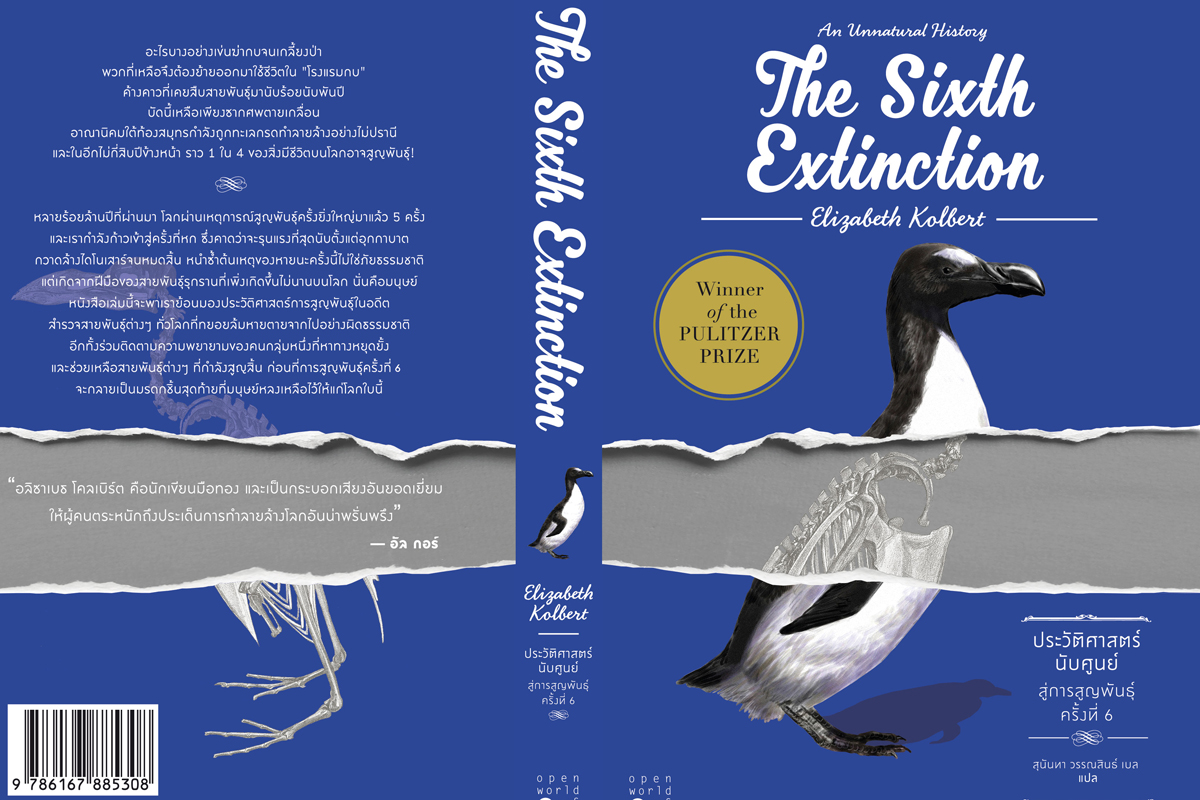

The signs are all over, if you know where to look, and Kolbert takes us along as she joins scientists in the field who are closely following the trail of our destruction - in tropical forests on the slopes of the Andes, in the Amazon, and among the threatened corals of the Great Barrier Reef, the disappearing amphibians of Central America, and the decimated bats of the Adirondacks and Vermont. "Welcome to the Anthropocene," Kolbert titles one of her chapters, referring to the by-now-familiar concept that humanity has become a planet-altering force whose impact will leave an indelible mark on the geological record.

What's truly extraordinary about our extraordinary moment is that this time, unlike those other mass extinctions, the underlying cause is a single highly successful species - yours and mine. The third and biggest, known as "the great dying," at the end of the Permian period about 250 million years ago, seems to have been caused by global warming and changing ocean chemistry, and as Kolbert writes, "came perilously close to emptying the earth out altogether." The fifth and most famous, which ended the Cretaceous period some 65 million years ago and doomed the dinosaurs as well as perhaps three-quarters of all living species, was brought on by an asteroid slamming into the Yucatan Peninsula. The first mass extinction, at the end of the Ordovician period (roughly 450 million years ago), is believed to have been caused by glaciation. Kolbert, a longtime staff writer at The New Yorker, structures the book in two parts, first tracing how scientists beginning in the 18th and 19th centuries came to understand (and fiercely debate) the revolutionary idea of mass extinction events in Earth's deep past, then guiding us through today's efforts to understand the current one. There appears to have been only five such big ones since life on this planet began, and what scientists believe is happening right now would be the sixth. Extraordinary because, as it turns out, a sudden mass die-off on a planet-wide scale - one in which a very large percentage, even the vast majority, of living species are wiped out in a geological instant - is an exceedingly rare thing.


 0 kommentar(er)
0 kommentar(er)
